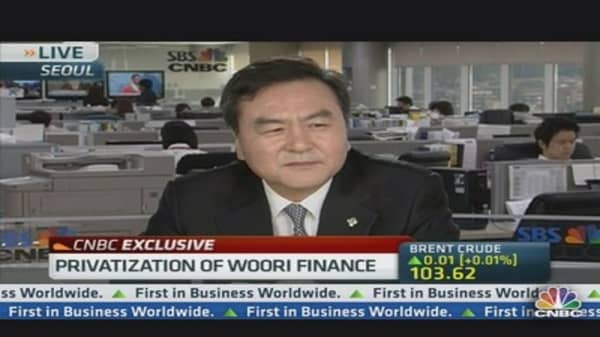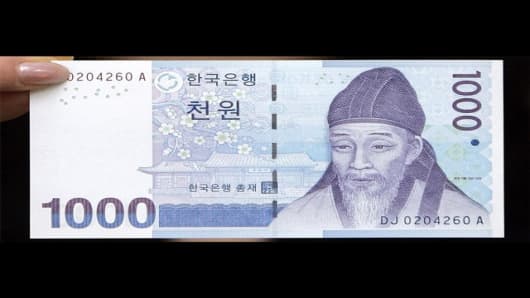Prime Minister Shinzo Abe's policies to revive Japan's economy are proving to be problematic for neighboring South Korea, said the head of the country's financial regulator as a weak yen poses a threat to Korea's export competitiveness.
"We have two channels through which 'Abenomics' affects the Korean economy - trade and financial sector," Je-yoon Shin, chairman of South Korea's Financial Services Commission told CNBC Asia's "Squawk Box" on Friday. Exports account for around half of the country's gross domestic product (GDP).
Given both South Korea and Japan economies rely on their export sectors for growth, depreciation in the yen which boosts the latter's export industry, presents a challenge for the former.
(Read More: Dollar-Yen Shake-Out Could Just Be the Start)
Despite the recent surge the yen has declined 16.6 percent against the U.S. dollar over the past six months driven by aggressive monetary easing in the world's third largest economy, while the won has depreciated just 2.7 percent.





